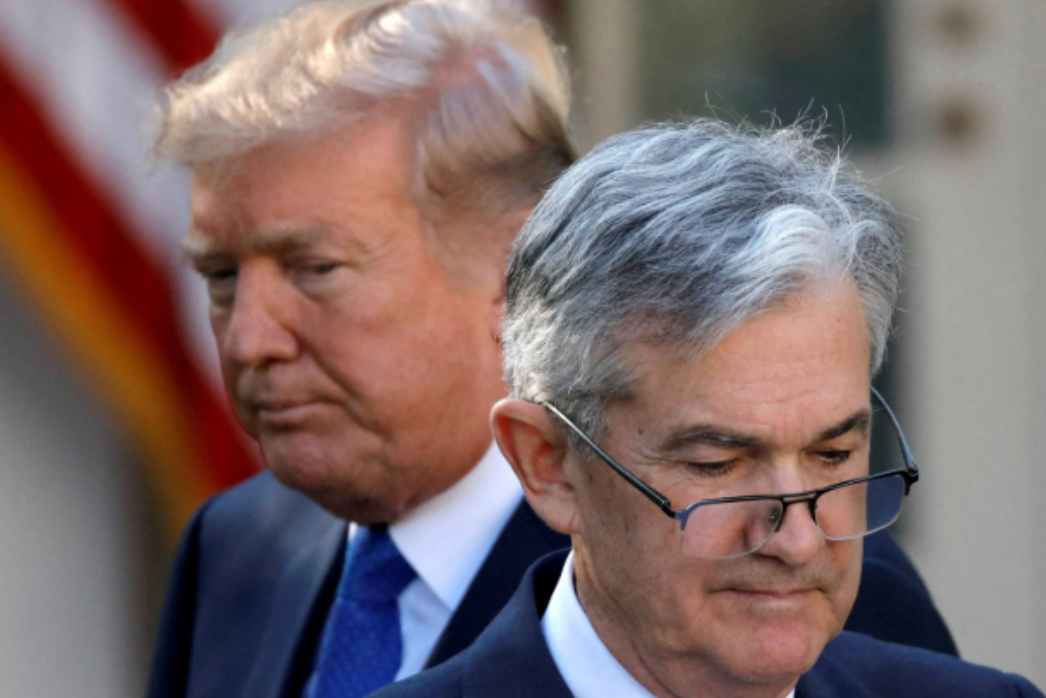
A potential shockwave may be brewing in global financial markets, and it centers around U.S. President Donald Trump and Federal Reserve Chairman Jerome Powell. According to a bombshell report from The New York Times, Trump is preparing to remove Powell from his position — a move that could be unprecedented in modern American history. While the Trump administration has denied these claims, the speculation alone has already rattled markets worldwide.
The report suggests that a draft for Powell's dismissal is ready and Trump could sign it at any moment. If such a decision is indeed taken, it could lead to a seismic shift in financial markets across the globe. Not only would it mark a rare intervention in the independence of the U.S. central bank, but it could also spark massive volatility in the U.S. dollar, government bonds, and safe-haven assets like gold and Bitcoin.
The impact of such a decision is already being felt. Just the rumors about Powell's potential removal caused the U.S. dollar index to drop by 0.8% this past Wednesday. While Trump has publicly dismissed the reports — saying there are "no plans" currently and that it seems "very unlikely" — his track record of turning the impossible into reality is well-known.
Why does the Fed Chair matter so much?
The Federal Reserve is an independent institution responsible for setting the country’s monetary policy, including key interest rates. Its independence is considered the bedrock of U.S. financial credibility. If investors begin to believe that the Fed is no longer independent and is being manipulated by political interests, it would significantly damage confidence in the U.S. economy.
A politically controlled Fed could lead to panic selling of U.S. dollars and government bonds. This, in turn, would lower the dollar’s value and force up borrowing costs for the U.S. government and consumers. The global perception of the U.S. as a financially stable economy would be shaken, potentially triggering long-term economic damage and loss of international trust.
The root of the current standoff lies in Trump’s persistent criticism of Powell. The president wants the Fed to drastically cut interest rates — by as much as 300 basis points or 3% — to stimulate lending and boost economic growth. Such a dramatic cut is unheard of in U.S. history. However, the Fed under Powell believes in carefully calibrating rate changes to maintain inflation and economic stability. This ongoing tug of war has contributed to uncertainty and choppiness in U.S. markets throughout the year.
What does it mean for investors?
Uncertainty in financial leadership often drives investors to seek safe-haven assets. That’s exactly what’s happening now. Gold and Bitcoin — both seen as hedges against economic instability — are experiencing strong upward momentum. Bitcoin recently surged past $122,000, while gold prices have also seen sharp gains in recent weeks.
On the flip side, the U.S. dollar has suffered. In the first half of this year alone, the dollar has dropped by nearly 11%, marking its steepest six-month decline since 1973. This trend reflects deepening concerns over the independence of the Fed and broader worries about America’s fiscal direction.
In conclusion, while President Trump has denied immediate plans to remove Jerome Powell, even the speculation is enough to jolt global markets. Should the move materialize, it would likely trigger further declines in the U.S. dollar and bonds — but simultaneously open significant opportunities for investors in gold and cryptocurrencies like Bitcoin. The world now watches closely, as the next move in Washington could redefine financial stability as we know it.
Disclaimer: This article is based on publicly available reports and should not be construed as financial advice. Readers are encouraged to do their own research and consult financial professionals before making investment decisions.




